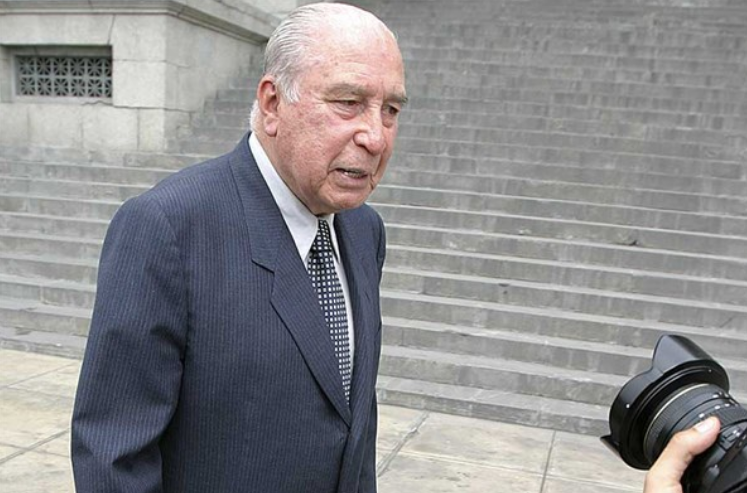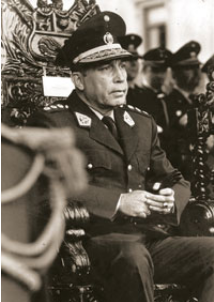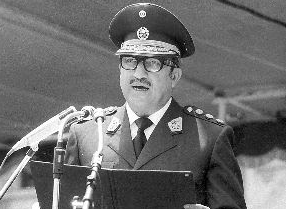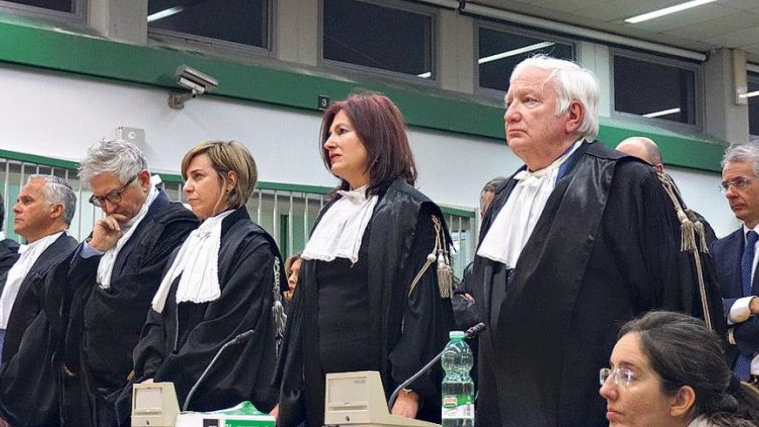
An Italian court yesterday confirmed its 2017 ruling to hand down a life sentence to retired General Francisco Morales-Bermudez, President of Peru between 1975 and 1980 and part of the regional military strategy known as Operation Condor in the 1970s.
Morales Bermudez, 97, is one of eight high-ranking military leaders from Bolivia, Chile and Uruguay who were tried in absentia in Rome for the disappearance of 20 South Americans of Italian descent during the military governments in the region in the 1970s and 1980s. One of the defendants, Jorge Troccoli, an Uruguayan army officer, was at the trial, the remainder were tried in absentia. Other military leaders involved (in total, 31) were also tried for lesser crimes. Of the initial defendants, General Pedro Richter Prada, Morales-Bermudez’ premier and minister of War, died in 2017; and Bolivia’s military dictator, General Luis Meza, died in April 2018.

In the 1970s, the military regimes in the region — Peru, Bolivia, Chile, Argentina, Uruguay, Paraguay and Brazil — developed an “integrated military strategy” of data sharing and covert operations known as Operation Condor, “to eradicate not only left-wing political thought and culture but silence the people who led the movements,” as Felipe Victoriano explains in his analysis of military coups in Latin America .

Suspects were arrested in different countries, interrogated and then shipped to Buenos Aires, where Jorge Videla’s government transferred them to different detention centers around the country. Some of the victims were believed to have been arrested in Peru and interrogated at military facilities in the central valley east of Lima.
The charges against the defendants were first brought in 1999 by Italian relatives of the missing persons, emboldened by the investigations by Spanish justice Baltazar Garzón, who a year earlier had issued an order for the arrest of General Augusto Pinochet.
In September 2015, the Peruvian justice system opened an investigation into Morales-Bermudez and three other high-ranking army officers, for the arrest in the 1970s and transfer to Argentina on military aircraft of several of Peru’s most prominent left-wing political figures and lawmakers, including Ricardo Napurí Schapiro, Ricardo Letts Colmenares, Javier Diez Canseco, Genaro Ledesma, Hugo Blanco, Justiniano Apaza, Guillermo Faura Gaig and the journalist Alfonso Baella Tuesta. The international pressure was so strong at the time, however, that they were released in Argentina, given emergency passports and deported to Mexico and Europe.
In August 2015, Morales-Bermudez wrote an op-ed in El Comercio in which he denied any involvement in Operation Condor.
“As governor of Peru from 1975 to 1980, I must state that our country was not a part of the so-called Operation Condor. Countries such as Chile, Argentina, Paraguay, Uruguay and Brazil created it in the 1970s and 1980s for the purpose of eliminating subversive elements that sought to remove the military governments frompower,” Morales-Bermudez wrote in El Comercio, adding that the military government in Peru was different to those in the countries involved in the plan.
“The second phase of the Peruvian military government was characterized, with errors, omissions and corrections, by its decided aim and in a programmatic fashion to return to democracy. Because of this, the distance of the Peruvian Government was diametrically oppposed to that of the southern cone regimes mentioned.”
Morales-Bermudez led a military coup against General Juan Velasco in 1975, and did guide the country back towards democracy, righting the economy and holding elections in 1979 for a Constituent Assembly, followed in 1980 by general presidential elections. However, although Operation Condor was an agreement initially signed by Chile, Argentina, Paraguay, Uruguay and Brazil, Peru did begin to support the program. UNESCO published a detailed report in 2015, “Operation Condor: 40 Years Later.”







This sentence holds as much meaning as a life sentence to Alan Garcia for corruption. What a waste of time and resources.